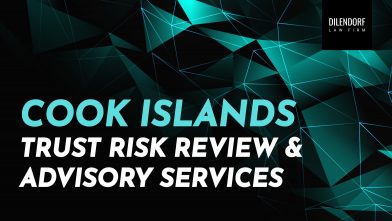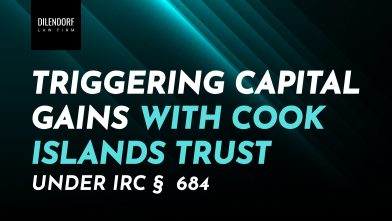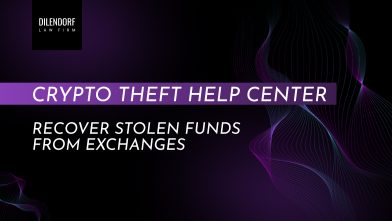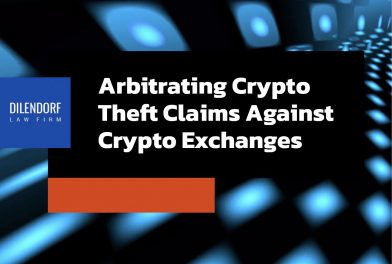Launching a Real Estate Tokenization Platform
Digital asset platforms for trading tokenized securities in the US are subject to securities laws requiring such platforms to be registered as a national securities exchange or fall within an exemption from a national securities exchange.
One exemption from registration as an NSE allows firms to conduct a platform business if such firm is registered as an alternative trading system (“ATS”).
ATS means an organization or system that provides a marketplace for bringing together purchasers and sellers of traditional or digitized securities.
Tokenized trading through ATS presents opportunities for real estate market participants to improve liquidity, trade efficiently, and increase market transparency.
Registering and operating ATS in the US, a real estate tokenization platform must register as:
- broker-dealer (“BD”);
- ATS with the Securities and Exchange Commission (“SEC”) and Financial Industry Regulatory Authority (“FINRA”);
- Transfer Agent Registration with the Securities and Exchange Commission. This would enable the company to offer blockchain-enabled transfer agent and registrar services for tokenized real estate securities; and
- have an ongoing compliance program to maintain the ATS and broker-dealer operations.
Timelines and Procedures for Launching ATS Platform
It could take around six to nine months to register a company as the BD and get ATS and transfer agent approvals from SEC and FINRA.
BD Registration Process
As part of the BD application process, a company must prepare a detailed business plan, written supervisory procedures for operating security token ATS, financial projections, KYC/AML procedures, sources of capital, copies of agreements with banks, clearing agents, various FINRA and SEC applications, disclosures, forms, etc.
The BD application involves an in-person interview of the company’s founders with FINRA to demonstrate, among other things, how the ATS blockchain technology infrastructure operates and what blockchain it supports.
After the BD application is approved and FINRA is satisfied with the proposed ATS platform/structure, the next step would involve registration of the ATS with the Securities and Exchange Commission.
ATS Registration Process
The ATS application is quite extensive and complex. The scope of the application involves demonstrating to the SEC, among other things, a detailed technical description of the ATS operation procedures (e.g., custody, compliance, the process for booking orders, etc.), a description of the types of tokenized securities to be traded, description of users on the platform (e.g., institutional v. retail), capacity, integrity, and security of automated blockchain systems as well as written procedures to ensure confidential treatment of trading information.
Transfer Agent Registration Process
As part of the Transfer Agent registration and approval process, the company must demonstrate to regulators how tokenized real estate securities will be transferrable between approved accounts on the ATS platform in peer-to-peer transactions on a blockchain network.
The Transfer Agent’s functions and responsibilities include creating, holding, distributing, maintaining and deleting tokenized blockchain securities.
The Transfer Agent could use industry-accepted blockchain standards (which can interface with various blockchain networks’ programming standards) to program any relevant compliance-related transfer restrictions that would traditionally have been printed on a paper stock certificate onto “smart contracts” (computer programs written to the relevant blockchain), which allows the smart contract to impose the relevant conditions on the transfer of the tokenized real estate securities.
One example of such coding is a restriction on to whom a real estate token may be transferred. Tokenized securities cannot be created or deleted by any entity other than the Transfer Agent.
Guiding Clients Through Each Step of ATS Registration
One of the challenges for registering an ATS is that the SEC and FINRA currently lack sufficient experience and technical understanding of the digital assets and trading platforms, which requires back-to-back communication and meetings with FINRA throughout the registration process.
Having experience in digital assets, including security tokens, and traditional securities, we represent our clients before the SEC and FINRA throughout the whole ATS registration process to achieve the result. Our partners are in the constant process of communicating with the SEC and FINRA representatives regarding the most efficient ways of registering and operating an ATS.
Our services throughout ATS registration process (with the concurrent FINRA and broker-dealer registration) include:
- Preparation of FINRA New Member Application (Form NMA);
- Preparation of Form ATS for submission to the SEC and FINRA;
- Preparation a detailed business plan and other required operational and financial disclosures and procedures;
- Preparation of AML policies and procedures;
- Training or procurement of a chief compliant officer (COO);
- Preparation to and attending with client the pre-membership interview with FINRA;
- Communications with the SEC;
- Structuring relations with banks and clearing agents;
- Preparation of alternative self-clearing ATS operational structures;
- State registration and filings in all 50 states plus US territories;
- Preparation of other forms, filings, disclosures and procedures to register an operational ATS.
While the process of registering an ATS is complex and challenging, it is achievable with proper planning, structuring and communicating with the US regulators, generally within 6-12 months.
Filing of the ATS Application with FINRA & SEC
Our team, in consultation with the client, prepare and file (utilizing the required FINRA Gateway System) a complete application for FINRA membership, including Form BD (SEC Uniform Application for Broker-Dealer Registration), New Membership Application, Form U4s, Form BR(s) state securities department registrations, and all required ancillary applications for membership in organizations such as SIPC.
We will prepare, in consultation with the client:
- Written Supervisory Procedures (“WSPs”) appropriate to the proposed business of digital broker-dealer, including:
- The manner of operating a blockchain-powered ATS;
- Procedures governing entry of orders into the ATS;
- The means of access to the ATS;
- Procedures governing execution, reporting, clearance, and settlement of tokenized real estate transactions effected through the ATS and supporting blockchain systems;
- Procedures for ensuring subscriber compliance with system guidelines; and
- ATS subscriber manual
- Business Continuity Plan (“BCP”);
- Anti-Money Laundering (“AML”) procedures;
- Pro-forma budgets; and
- Any other documents required or requested in connection with the Registrations.
Our team will also assist the client with preparing a business plan in the format required to satisfy the requirements of FINRA Rule 1014. The Client will seek approval for the following business lines:
- Private Placement of Tokenized Real Estate Securities, Including Those Issued in Digital Form (Regulation A, Regulation D and Crowdfunding)
- Operator of Alternative Trading System (“ATS”) For Secondary Transactions in Securities, Including Those Issued in Digital Form.
Types of Tokenized Securities that Can be Traded on ATS Platforms
Real-estate tokens will virtually always qualify as securities under state and federal law. As such, they must be registered with the Securities and Exchange Commission (SEC) or satisfy an exemption from registration.
Of course, most issuers will not seek to register with the SEC, but structure their security token offerings as exempt transactions.
In doing so, they will choose from among several available exemptions, including Regulation CF, Regulation D, Regulation S and Regulation A+ all of which can be traded on an ATS platform.
These regulations impose different requirements on the offering, from limitations on who may invest, to limits on the amounts raised, to resale restrictions on investors.
Conclusion
Because launching a real estate tokenization platform is a complex and strategic undertaking, it requires careful planning and coordination to develop a practical product launch roadmap. Tokenization has the potential to change the way people invest in real estate all over the world.
But realizing that potential will require significant thought and planning by blockchain developers and their professional advisers. Tokenization is subject to a complicated web of legal and practical issues, any one of which could make the difference between success and failure.
Consequently, ATS platform operators and developers should consult knowledgeable securities, tax, accounting, and real estate professionals early in the process of planning a real-estate security token.
Resources for Registering/Operating ATS:
- List of active Alternative Trading Systems
- Summary of the Rules that SEC Adopted to Enhance Oversight of Alternative Trading Systems
- Regulation of NMS Stock Alternative Trading Systems
- Requirements for Alternative Trading Systems
- Form ATS
- SEC’s Warning About Online Platforms for Trading Digital Assets
Broker-Dealer Registration
- SEC Guide to Broker-Dealer Registration
- SEC Exemptions from Broker-Dealer Registration
- Registration requirements for Non-Finra Broker Dealers and Salespersons
- New York State Broker-Dealer and Securities Registration Information Sheet
- California Broker-Dealers, State Investment Advisers and SEC Investment Advisers
- Applying for Broker-Dealer Registration in Connecticut
Transfer Agent Registraiton
- Transfer Agents – SEC Guide
- Registered Transfer Agents – Form TA-1
- Transfer Agent Registration & Annual Reporting Requirements
- Registration of Securities Transfer Agents










